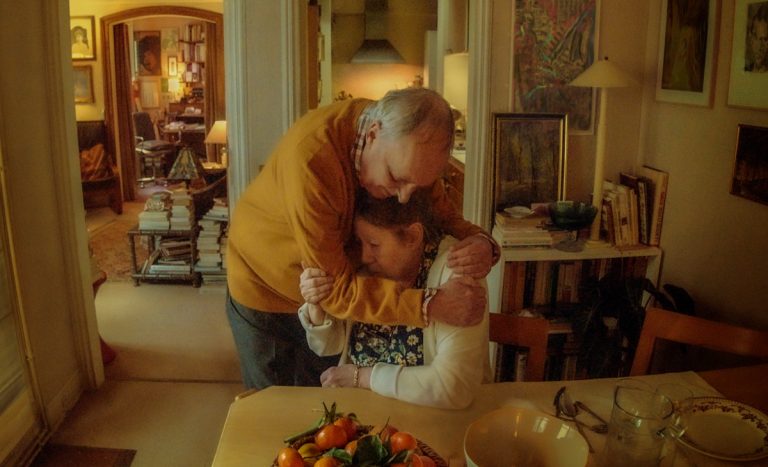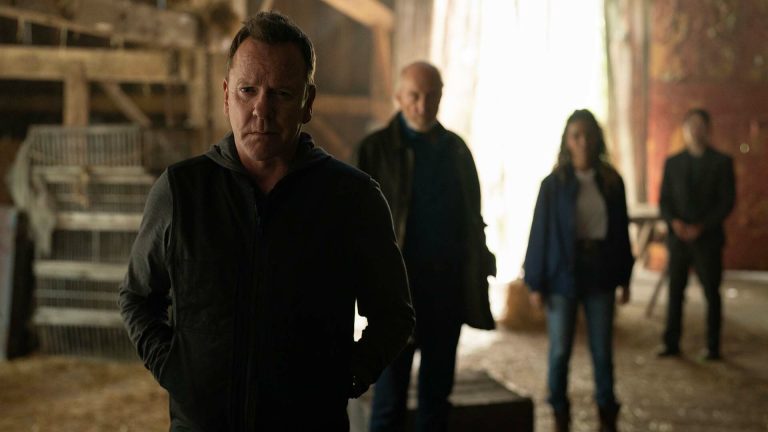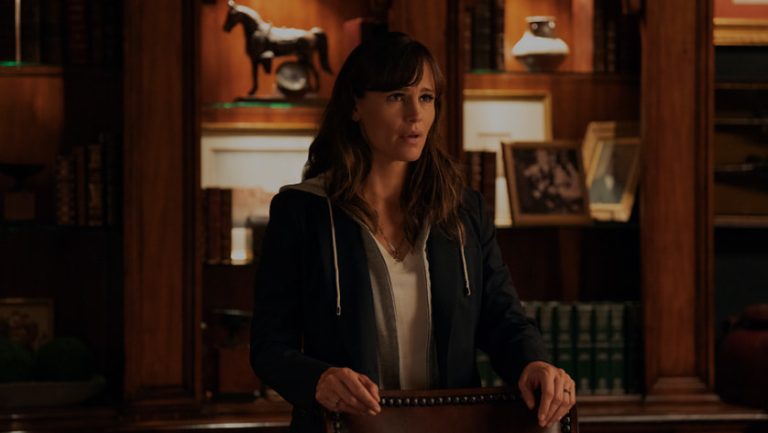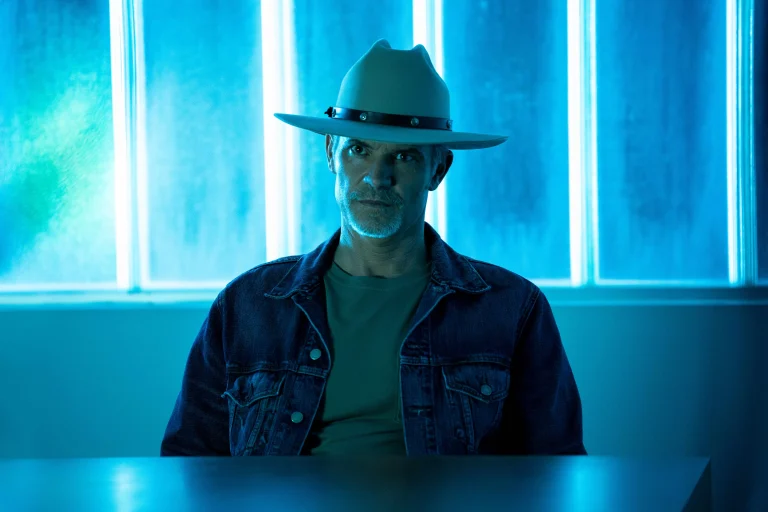Alan J. Pakula was one of the key figures from the New Hollywood movement. Be it “All the President’s Men,” “Sophie’s Choice,” or “The Parallax View,” he always examined the psyche of his characters with striking attention to detail. “Klute” is one of his significant contributions to cinema, and it effectively portrays the dread and paranoia surrounding its characters. Starring Jane Fonda and Donald Sutherland in some of their most memorable roles, the film follows a private detective investigating his family friend’s murder with the help of a call girl. Besides them, the film also stars Roy Scheider, Charles Cioffi, Nathan George, Dorothy Tristan, and Rita Gam.
Spoilers Ahead
Klute (1971) Plot Summary & Movie Synopsis:
Alan J Pakula’s “Klute” is a neo-noir psychological thriller that follows a private detective looking for the culprit behind his friend’s murder with the help of a sex worker. The film is written by Andy & Dave Lewis and directed by Alan J Pakula.
What is the Jane Fonda starrer ‘Klute’ about?
Although a crime thriller, “Klute” begins on a far more sociable note. It shows a family and friends having a meal and a casual conversation. There is no hint of malice. Within moments, it is revealed that the family patriarch, Tom Gruneman (Robert Milli), has mysteriously disappeared. The police find a suspicious letter in Gruneman’s office written to a call girl in New York City, Bree Daniel (Jane Fonda). He claims that Bree has received a few more similar letters. Even though the police call Gruneman a ‘highly disturbed’ man, his wife doesn’t believe it. The officer still claims that Gruneman led a double life.
Despite the police investigation, Gruneman remains missing for over half a year. The cops share the details they learned about Bree and reveal her paranoia about someone following her. Due to their failure to locate Gruneman, his colleague, Peter Cable (Charles Cioffi), hires a family friend and private detective John Klute (Donald Sutherland) for the investigation. Meanwhile, in the Big Apple, Bree aspires to be a model and an actress. During one of her selection processes, she faces blunt scrutiny for her looks and appearance. Regardless, she freelances as a call girl and earns a living. Her life revolves around providing men with pleasure in one or the other way.
Klute’s Arrival in New York
One day, Klute shows up at Bree’s doorstep to ask about Gruneman’s disappearance. Since he is not a police officer, she refuses to answer his queries. Regardless, Klute follows her throughout the day. She goes to meet a man who is looking for an actress for his Broadway act. However, she leaves in the middle of their meeting because of his sleazy behavior. She meets her therapist to reflect upon her urge to return to sex work. Bree likes the job since it gives her a sense of control since she chooses her clients. It also offers her a feeling of being desired by someone else without needing to like them. Still, it leaves her feeling empty.
Klute’s Life
At night, Bree visits an old client and strips for him. Klute watches them from a distance. Back home, she bumps into Klute and learns that he has been tapping her phone calls through a rented apartment in her building and following her around. So, she cooperates with his queries. She reveals that she doesn’t remember ever meeting Gruneman. Then, she admits that, two years ago, a strange client tried to kill her and beat her up. The cops made her confess to Gruneman being that client. Recently, she started getting some blank calls. But she considers it a part of her life. Hearing that, Klute starts judging her for her choice of profession. She takes offense to it.
Klute reveals seeing Bree stripping down for her old client. Bree defends herself for providing that service to a widower who doesn’t even touch her. Throughout their argument, Klute remains straight-faced and shows no compassion to her. Still, the next day, Bree takes him to meet her former pimp, Frank Ligourin (Roy Scheider), to speak about Jane McKenna, another sex worker connected to the abusive client. Frank claims that he hasn’t seen this man. Jane killed herself, and her colleague Arlyn Page (Dorothy Tristan) became a junkie. So, Frank or Bree do not know where Arlyn is. Later, Klute gives Bree the tapes he made of her phone conversations. She throws them away.
Arlyn’s Connection
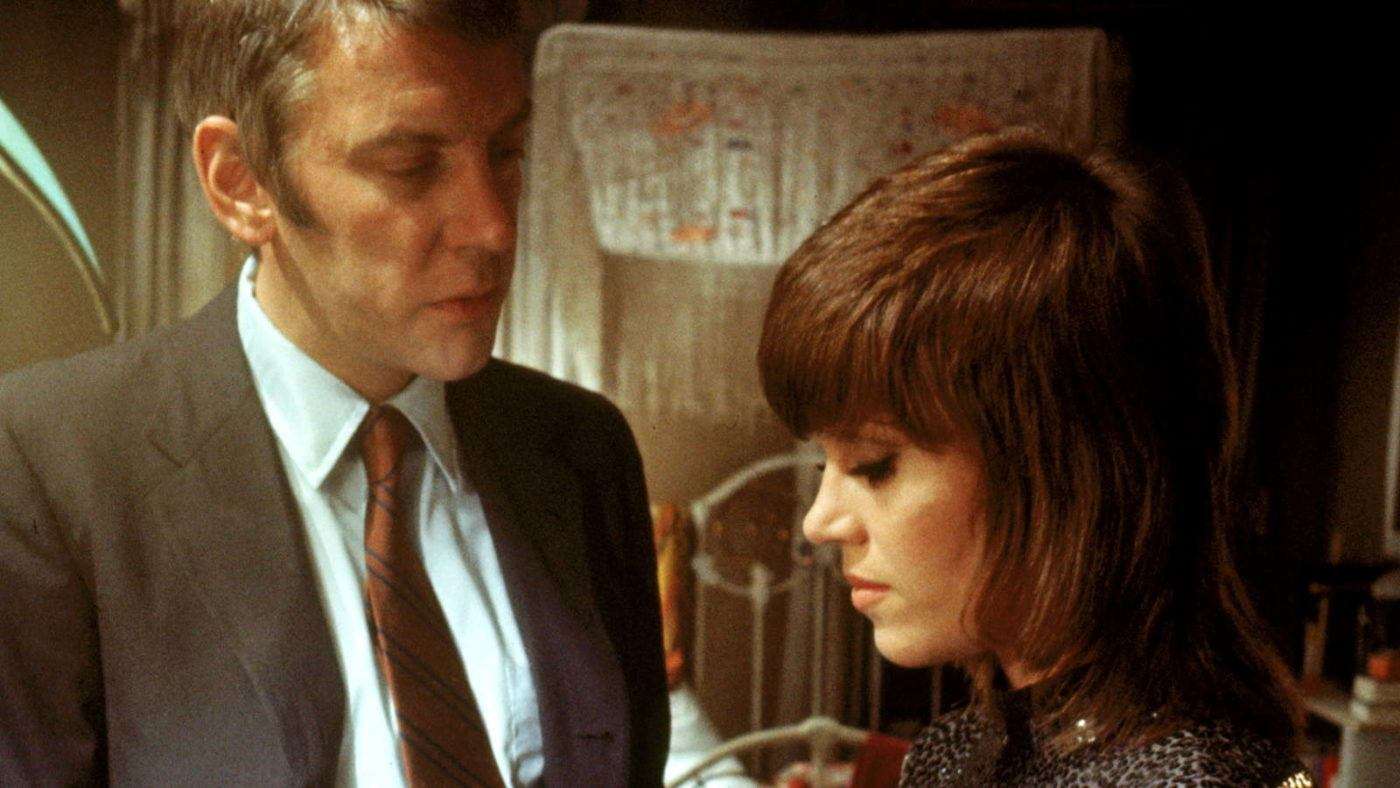
Klute makes Bree help him find Arlyn. During that time, Klute and Bree fall for each other and have sex. After questioning a couple of pimps in the town, they find Arlyn, show her Gruneman’s photo, and ask her about the abusive client. She says that Gruneman is not that client and was older than him. Later, Bree walks into a club and reunites with Frank. Klute reports to Cable about Arlyn and talks about his plan to pursue her to find the truth. Then, he returns to New York to find Bree’s cluttered apartment. Later, she meets her therapist to talk about the dread she feels due to the recent tragedies.
Klute (1971) Movie Ending Explained:
Who is behind Gruneman’s mysterious disappearance?
The cops find Arlyn’s dead body in a river. Klute connects Arlyn & Jane’s murders to the abusive client, who presumably pretended to be Gruneman. Bree speaks with her therapist about her relationship with Klute and how she hopes it will end. She recalls feeling more in control during her sex work than being with him. Later, while she is out with Klute, someone breaks into her apartment. Bree returns to her apartment to find it wrecked. Then, she receives a phone call. The caller plays an audio recording of her voice seducing a client. So, Klute does a typographic comparison of the letters and traces them to Cable.
Klute asks Cable for money to buy a book with the information on Jane’s clients. Then, he returns to Bree’s apartment to find Frank inside. Klute realizes that Frank is hoping to use Bree again for his business. Therefore, Klute attacks Frank, and Bree impulsively attacks Klute. After Klute leaves, Bree goes out to her doctor. Cable follows her. Soon after, Cable comes face to face with Bree to reveal the truth. In the past, Gruneman saw Cable abusing Jane. Cable feared it would affect his career. So, he tried to frame Gruneman in the case by planting a letter in Gruneman’s office. In the present, Cable plays an audiotape where he confesses to having killed Frank. As Bree gets emotional, Cable attacks her.
Does Bree decide to be with Klute?
Klute intercepts the threat and arrives there. Frank notices Klute and crashes through a window. At the end of “Klute,” Bree vacates her apartment. Through a voice-over, we hear her speak about her plans with Klute. She refuses to enter into a traditional relationship even if she admits she will miss Klute. Then, she leaves her apartment with Klute with the hope of leaving the city for the time being.
Klute (1971) Movie Themes Analysed
Paranoia & Surveillance
Unlike the conventional plot-driven investigative thrillers, “Klute” doesn’t revolve around finding the culprit. It is far more interested in the psychological turmoil of its characters and how the case leads them to confront their worst fears & insecurities. There is a pervading sense of paranoia throughout the film resulting from their anguish. The film builds an intricate web of secrets, lies, and deceptions to build intrigue and presents its devastating impact on the central characters. While the characters face deceptions, the film also tricks us into believing version of the truth and puts us in the same mindset as Bree & Klute. It uses means of surveillance to deepen the emotional impact.
Bodily Autonomy
Despite the exploitative nature of Bree’s profession, she takes pride in what she does. The film doesn’t strip her of her dignity, and Fonda (in her scintillating and deservedly Oscar-winning performance) elevates the character through her liberating portrayal. Fonda departs from the usual cliches and lets Bree never seem like a damsel in distress looking for a savior. Despite her sexual relationship with Klute, she doesn’t see him in that regard. Even if he appears like an escape from her risqué life, she does not wish to be stuck in a conventional institution that will bind her. She leads a solitary but uninhibited life and speaks frankly about her expectations of sex & satisfaction.
Read More: Don’t Look Now (1973) Movie Ending Explained: Who is the Red Hooded Figure John Keeps Seeing in Venice?
Klute (1971) Movie Trailer:



